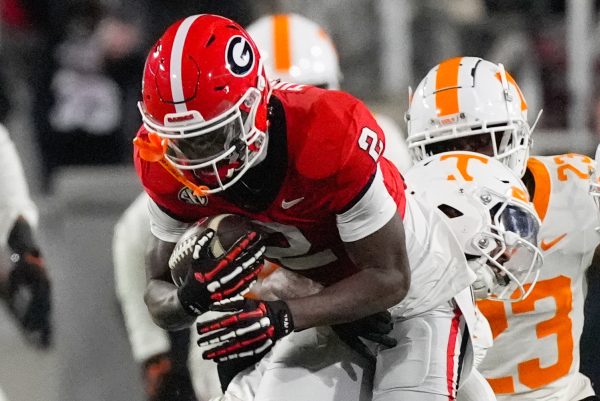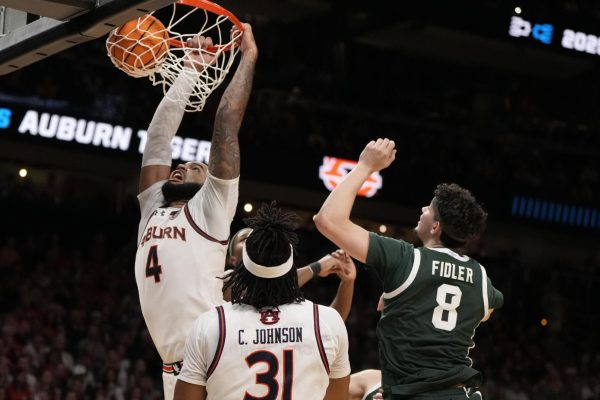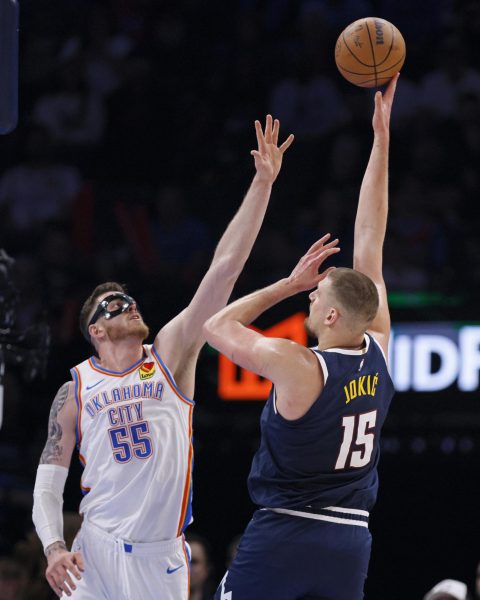The Myth of the Clutch Derek Jeter
The New York Yankees were at it again. In Game 5 of the World Series on Monday night, the Yankees were chipping away at an insurmountable lead and threatening to take away the Philadelphia Phillies’ World Series title. The comeback was set up perfectly: ninth inning, runners on first and third, nobody out and Derek Jeter strolling to the plate as the tying run. Heralded as one of the game’s best clutch performers, he is just the player you want in at the plate with the game on the line. As Phillies fans prepared for the worst, Capitan Clutch grounded into a double play, killing the rally and sending the series back to New York for Game 7.
As Phillies fans celebrated their victory, I could not help but wonder if Derek Jeter was really a clutch player. There is no question that Jeter is one of the best players of our generation. One could even argue that he is the greatest shortstop of all-time. He is a ten-time All-Star, three-time gold glove winner, three-time silver slugger winner and has four World Series championships. His accomplishments speak for themselves, but I am asking whether Jeter repeatedly performs above his already high talent level in pressure situations?
Jeter is a career .317 hitter in the regular season. Any statistic that can be argued as an indicator of clutch shows Jeter does worse than his career average. Jeter is a career .317 hitter with runners on base and he is a .308 hitter with runners in scoring position. He has a .295 batting average after the seventh inning in either a tie or one-run game and, in the postseason, Jeter is a .310 hitter (he holds the record for most postseason games played). What do all these statistics mean? Simply, in clutch situations, Jeter’s statistical performance is no different than in non-clutch situations.
If Jeter is not statistically clutch, this begs the question can any player have an innate ability to repeatedly perform above his talent level in high-pressure situations?
Dozens of studies make a strong case against clutch hitting as a skill. These studies hold that there is no statistical evidence to prove that certain players rise to the occasion in clutch situations with any consistency. For example, a 1993 study by statistician David Grabiner, found that “the correlation between past and current clutch performance is .01, with a standard deviation of .07. In other words, there isn’t a significant ability in clutch hitting; if there were, the same players would be good clutch hitters every year.”
In his famous 1984 Baseball Abstract, Bill James addressed the problem of clutch hitting: “How is it that a player who possesses the reflexes and the batting stroke and the knowledge and the experience to be a .260 hitter in other circumstances magically becomes a .300 hitter when the game is on the line? How does that happen? What is the process? What are the effects? Until we can answer those questions, I see little point in talking about clutch ability.”
Performance in important situations is often attributed to a player’s character or heart that causes a particular outcome. Yet, when the best players in the world go head-to-head, someone has to win. It has nothing to do with their character or heart and, with a large enough sample size, there is no statistical evidence that certain athletes have ice water in their vains.
It is important to distinguish that clutch performances (rather than clutch players) certainly exist. You cannot watch a baseball game without seeing a crucial hit, a key defensive play or a game-changing strikeout. In fact, most of the moments forever engrained in the minds of baseball fans are clutch performances including Bobby Thompson’s “Shot Heard Round the World” or Aaron Boone’s 13th inning walk off against the Red Sox, or Kirk Gibson’s pinch hit home run in the 1988 World Series. These are the moments that make baseball great.
No athlete wants to believe that they succeed because on that particular day, they simply performed better than another athlete. It is much more enjoyable to credit a certain moral superiority from on-field success. Joe Sheehan of Baseball Prospectus said it best “to attribute that game-winning double to your heart and desire, rather than to your fast-twitch muscles and hitting the fastball at just the right angle to push it past the diving center fielder. It’s this need to turn physics and physicality into a statement about the character of people–to stick labels on them based on their day at work and the bounce of a ball–that is the most damning thing about the myth of clutch.”
Many baseball fans claim that the idea that the lack of “clutch players” takes the fun out of the game. This could not be further from the truth. The beauty of baseball rests in individual performances. On any given day, regardless of statistics, in one swing, in one pitch, in one moment, any player can do something special. That is the beauty of baseball.






